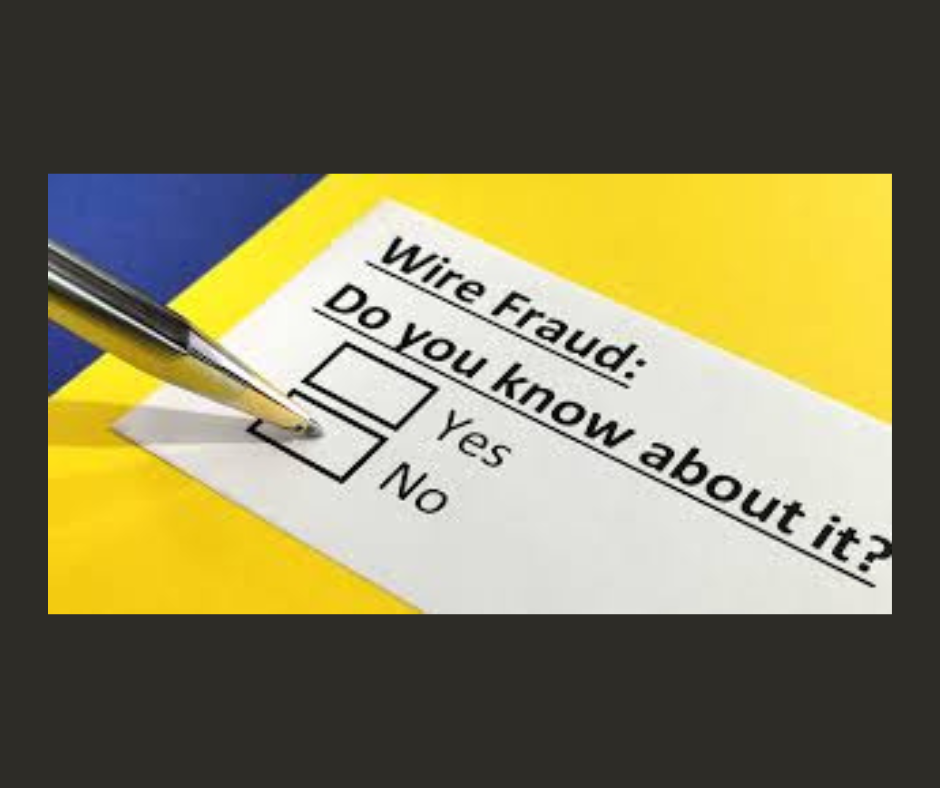⚠️ Watch Out for Wire Fraud
💡 What Is Wire Fraud—And Why Are We Talking About It?
Wire fraud is a form of financial cybercrime where criminals trick homebuyers into sending money—usually their down payment or closing costs—to a fraudulent bank account. These scams are incredibly sophisticated, often involving hacked email accounts, spoofed messages, and fake websites or phone calls that appear 100% legitimate.
And unfortunately, it’s on the rise.
According to the FBI’s 2024 Internet Crime Report, over 21,000 victims reported wire fraud through Business Email Compromise (BEC) schemes, resulting in losses of $2.7 billion—a significant portion of which came from real estate transactions (🔗FBI, 2024).
As your trusted mortgage Mama Bear, I’m raising the red flag not to scare you—but to help protect you. This scam isn’t limited to first-time buyers or tech newbies. It’s hit high-end buyers, seasoned investors, and professionals who thought they were too savvy to be fooled.
📬 How Wire Fraud Happens (A Real Scenario)
Let’s paint the picture: You’re almost at the finish line. An email arrives from someone claiming to be your title agent or attorney with pre-closing instructions. It includes the correct property address, your title company’s name, and the exact amount due at closing. There’s even a phone call from someone posing as their assistant to confirm everything. So, naturally, you wire the funds.
And just like that, it’s gone.
Fraudsters use advanced techniques to hack into email accounts—those of buyers, agents, lenders, or title companies. They quietly monitor conversations, waiting for just the right moment to send a spoofed message with fraudulent wire instructions. Because the details seem accurate, buyers fall for it—until they realize the funds went to a scammer’s account.
💵 When Will You Actually Need to Wire Funds?
Wiring funds is a legitimate part of the mortgage process, but it only happens at key moments. Most buyers are asked to wire earnest money shortly after contract acceptance, and then again to send their down payment and closing costs a day or two before closing.
Here’s the golden rule: Only your title or escrow company should provide wire instructions, and most will give those to you securely—not through standard email. The American Land Title Association (ALTA) recommends getting your wiring instructions and trusted contact list up front and sticking to it throughout the transaction (🔗ALTA, 2023).
🐼 Mama Bear’s Guide: How to Stay Safe from Wire Fraud
Scammers are slick—but you’re smarter. Here’s how to protect your hard-earned money:
🛑 Before you wire a single cent, CALL your title company to confirm the instructions. Don’t trust emailed instructions without verifying over the phone using a trusted number you received at the start of the process. This one step can prevent a devastating loss.
🔐 Secure your tech. Use strong passwords, two-factor authentication, and don’t use public Wi-Fi when dealing with sensitive information. Learn more here: 🔗 CISA Best Practices
📋 Know the process early. Ask your title company for wiring protocols up front, including a list of authorized contacts. Save it somewhere safe.
🚨 Red flag any last-minute changes. If wiring instructions change—especially before a holiday or weekend—stop and verify by phone. Fraudsters time their attacks for maximum confusion.
✉️ Don’t reply—forward. Instead of replying to an email, start a new one and manually enter the trusted email address. It lowers your risk of responding to a spoofed message.
💵 Ask about cashier’s checks. Some title companies accept them and can verify funds with your bank. It’s a great low-risk option when available.
👀 👀 Stay alert if you’re not tech-savvy. Even seasoned buyers are targets; vigilance is your best ally .
🛑 Call before you wire. Don’t trust the email sending you the wiring instructions—trust the phone, and your instincts. 🐼
🎯 What It Means for You
Wire fraud isn’t just a story—it’s a real risk in real transactions. But it’s 100% preventable with the right steps, tools, and backup. As your mortgage Mama Bear, I’ll help confirm instructions, ensure communication stays secure, and keep your journey to homeownership smooth and safe.
If anything feels off, reach out right away. When in doubt—don’t click, don’t wire, don’t guess—CALL. 😊
🔗 Here’s more from the CFPB on protecting yourself
If something feels off—even slightly—pause and call me. I’m here to walk you through every step and make sure your funds (and your dream home) are protected. Let’s make sure your closing day is one to celebrate—not regret. 🐼





